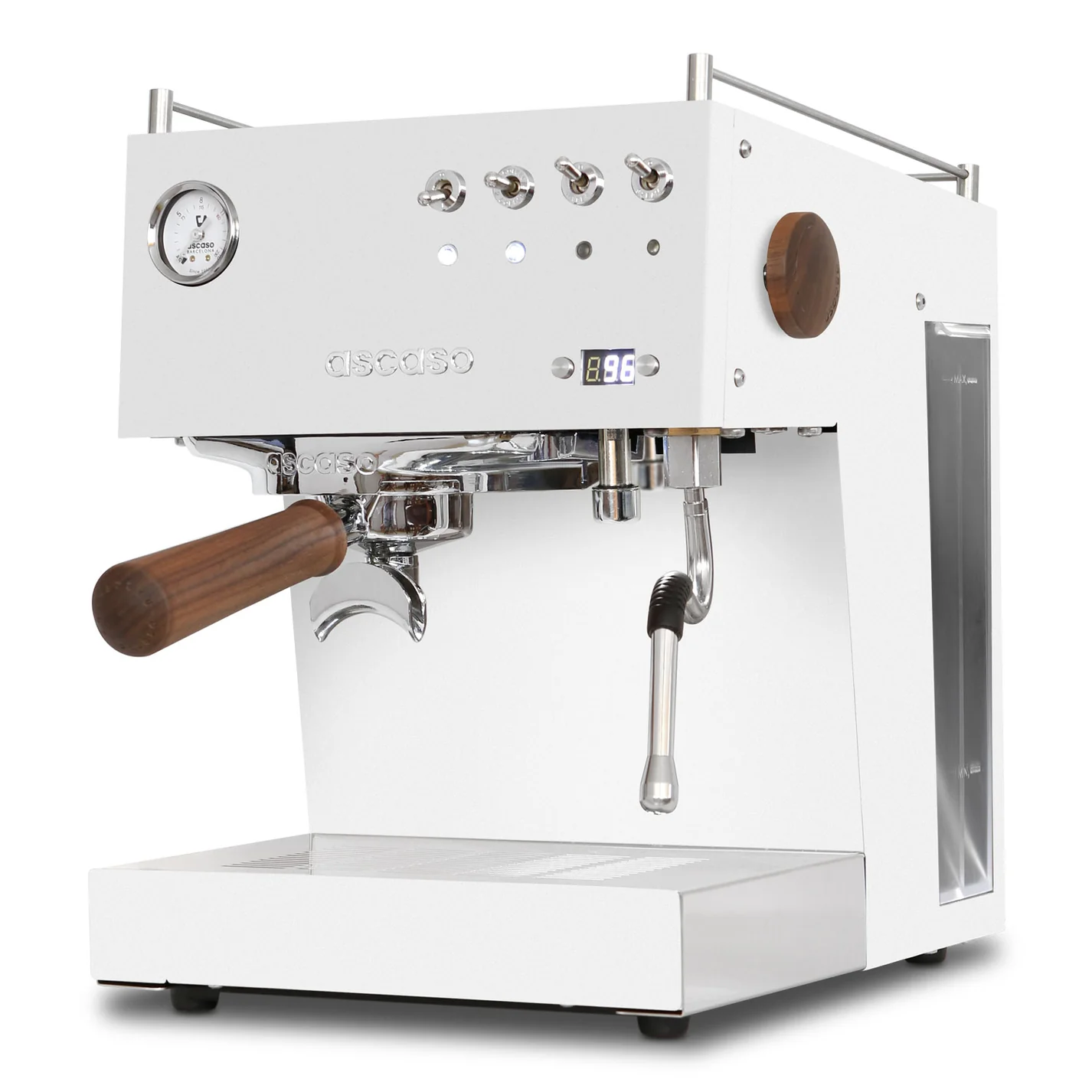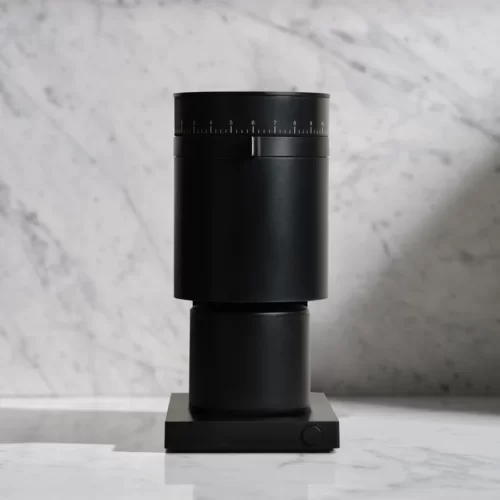The Truth: How Decaf Coffee Is Made – What No One Tells You

Heads up: This content is reader-supported, meaning we may earn a small commission if you click on some of our links.
Ever feel like your relationship with coffee is a bit one-sided? Like maybe your coffee’s not that into you?
We’ve been there. For various reasons, caffeine sometimes doesn’t work with your body. Lucky for all of the caffeine sensitives out there, giving up coffee for good isn’t your only option.
But with all the misinformation about how decaf coffee is made, you might wonder if drinking decaf coffee vs. regular may be more trouble than it’s worth.
Is decaf coffee really decaf? Is decaf coffee safe to drink? How much caffeine is in a decaf coffee? Here, we’ll take an in-depth look at how decaf coffee is made and get to the bottom of this decaffeinated cup.
So, let’s get brewing.
Table of Contents
How Decaf Coffee Is Made

What’s The Difference Between Decaf Coffee And Regular Coffee?
The definition of “decaffeinated,” according to Miriam-Webster, is “having the caffeine removed.” Okay, great. But what exactly does that mean?
Decaffeinated coffee is like regular coffee, except one of three methods has removed most of the caffeine (more on that in a moment).
Wait, MOST?! Regardless of how decaf coffee is made, not all caffeine is removed from the coffee beans during decaffeination.
So before we dive into how decaf coffee is made, let’s look at the caffeine content in decaf coffee vs regular. Is decaf coffee really decaf?

How Much Caffeine is in a Decaf Coffee?
Even the slightest trace of caffeine can harm those with severe sensitivities. So, is decaf coffee really decaf?
Decaf coffee is made by drawing the caffeine out of the beans through organic solvents, water, or carbon dioxide. Decaffeination removes at least 97% of the caffeine from the green coffee beans, regardless of how the coffee is decaffeinated.
So, how much caffeine is in a decaf coffee? The average cup of decaf coffee (around 8oz) has about 2-7 mg of caffeine, compared to the same amount of regular coffee, which has about 95-140 mg.

The caffeine content in decaf coffee beans depends on a couple of factors: which decaffeination method is used and the type of coffee bean.
Which coffee beans have the most caffeine? In short, Robusta beans. Regarding green coffee beans, Ethiopian beans have the least caffeine at 1.13%, the popular Arabica beans have 1.5%, and Robusta tips the scales at 2.4%.
So, when choosing decaf coffee beans, it’s essential to consider the type of bean when evaluating how much caffeine is in your decaf coffee vs. regular. Consider the roast level of the beans as well. Contrary to popular belief, dark roast beans contain less caffeine than light roast beans.
Dark roast beans are roasted longer than light roast beans; therefore, more caffeine burns off during roasting. So, when purchasing decaf coffee beans, consider how decaf coffee is made, which beans were used, and how they were roasted.

Does Decaf Coffee Have Chemicals?
Yes and no. When we look at how decaf coffee is made, it isn’t fair to say that all methods are created equally.
The first and most common decaffeination method involves using chemical solvents to extract caffeine. While minuscule, trace amounts of these chemicals are left on the coffee beans’ surface.
Solvents, usually a combination of methylene chloride, ethyl acetate, and water, are applied to green coffee beans to extract the caffeine. The beans are warmed and soaked in the solvents until the caffeine has been removed.
The beans are then washed, steamed, and, eventually, roasted at temperatures that evaporate any liquids used in the decaffeination process. The FDA has set rigorous standards to ensure that any traces of solvents left behind on the coffee beans are safe.
The second and newest method for decaffeinating coffee uses carbon dioxide, a compound in coffee in gas, to extract the caffeine from the green beans. This highly efficient process uses zero chemicals and leaves all flavor compounds intact.
Sounds pretty ideal. The catch? The carbon dioxide method for decaffeinating coffee is expensive.

What Is Water Processed Decaf Coffee?
The final method for how decaf coffee is made is what is known as the Swiss Water Process. This organic process uses only clean, fresh water to naturally remove the caffeine from the green beans.
The Swiss water process removes 99.9% of the caffeine from the beans without chemicals. So not only are you getting beans without any chemical residue, but you’re also drinking decaf coffee that’s decaffeinated.
How decaf coffee is made will significantly impact the flavor of the coffee. Using chemicals to remove caffeine will alter the taste and smell of the coffee, resulting in a lighter-colored bean with a milder flavor.
Decaf coffee beans treated with the Swiss water method will have the most flavor, but as this method is challenging to produce at scale, you’ll typically find it on organic coffee or higher-end varieties.

Does Organic Decaf Coffee Have Chemicals?
Organic decaf coffee uses the Swiss water process instead of chemicals to remove the caffeine. No trace chemicals here.
Buying organic decaf coffee vs. regular ensures that the coffee has been decaffeinated through water only. If you’re purchasing a decaf variety that isn’t organic, look for the Swiss water seal on the bag.
If the Swiss water process isn’t mentioned on the bag, then you can’t be sure that the beans are entirely chemical-free (or more than 97% caffeine-free, for that matter).
What Does Organic Coffee Mean?
To be certified organic, coffee must meet several stringent criteria ranging from soil quality to pest and weed control and additives.
Coffee labeled with the USDA organic seal has followed rigorous organic supply chain management practices and quality standards.
These standards include everything from the health of the soil, the absence of any GMO crops in production, pest/weed management, and environmental impacts/benefits (carbon emission reduction, carbon sequestration).
The USDA organic standards also require strict supply chain and manufacturing controls for roasting and manufacturing.

Are There Any Benefits To Drinking Decaf Coffee vs Regular?
There are several reasons why you may choose decaf coffee vs. regular coffee. Many people experience caffeine-related symptoms like nausea, dizziness, gastrointestinal upset, heartburn, and anxiety, to name a few.
But, besides the apparent reduction in caffeine intake, are there any benefits to drinking decaf coffee? The good news is, yes, there are.
Decaf coffee has been found to contain similar amounts of antioxidants as regular coffee and minor amounts of some nutrients like magnesium, potassium, and niacin.
So, in other words, drinking decaffeinated coffee offers similar health benefits to drinking regular coffee but without the jitters.

Closing Thoughts: Decaf Coffee vs. Regular
Deciding between decaf coffee vs. regular is a personal choice, but one thing is clear: not all decaf coffee is created equal.
Now that you know how decaf coffee is made, you can make informed decisions about your coffee beans. While the FDA asserts that drinking decaf coffee is safe, regardless of the decaffeination method, we can’t recommend any coffee treated with chemicals in good conscience.
If decaf coffee is your jam, pick up a bag of organic coffee beans naturally decaffeinated with the Swiss water process. You’ll be pleasantly surprised by how familiar they smell and taste.
Happy decaffeinating!
FAQ’s
Is Decaffeinated Coffee Less Acidic?
Studies have shown that, regardless of how decaf coffee is made, it is slightly less acidic than regular coffee. This is because some of the phenolic acids are removed during decaffeination.
However, the acidity level in coffee is more heavily influenced by the roasting process. You might be surprised that dark roast coffee has lower acidity than light roast coffee, so opt for a medium to dark roast if you have a sensitive stomach.
Is Decaf Coffee A Diuretic?
Is decaf coffee a diuretic like regular coffee? Wait… is regular coffee a diuretic?
Opinions are evolving on the role of caffeinated beverages in our daily fluid intake. Many people still believe that regular coffee is a diuretic; therefore, it would stand to reason that decaf coffee is not a diuretic. They’re partially right.
According to the Mayo Clinic, drinking regular coffee may have a slight diuretic effect (meaning it causes urination). Still, little to no evidence suggests that drinking coffee increases the risk of dehydration.
While caffeine causes coffee’s (slight) diuretic effect, it’s negligible. So, is decaf coffee a diuretic? No, decaf coffee is not a diuretic. Consuming decaf coffee vs. regular counts toward your total daily intake of fluids, as it is as hydrating as water.
Is Decaffeinated Coffee Unhealthy?
Studies have shown that drinking decaffeinated coffee may offer similar health benefits to regular coffee. But while decaffeinating methods have come a long way since the early 1900s, chemical solvents remain the most common method for removing caffeine.
While the FDA asserts that all decaf coffee, regardless of how decaf coffee is made, is safe to consume, the use of methylene chloride remains controversial. Methylene chloride, when inhaled, can cause symptoms ranging from coughing and shortness of breath to headache, nausea, dizziness, and fatigue.
The FDA strictly limits the amount of methylene chloride in decaf coffee to 10 parts per million, or 0.001%, and has concluded that these amounts are too minuscule to affect your health.
If you’re looking for solvent-free decaf coffee, look for the Swiss water seal on the bag. Organic decaf coffee is made using the Swiss water process, so buying organic will guarantee that your coffee is chemical-free.
ABOUT THE AUTHOR
Heather Calatrello
Heather is the head coffee roaster and founder of ShedLight Coffee Roasters in San Diego, CA. Her solar-powered coffee roastery was recently the subject of a BlueDot Living dispatch, and she has repeatedly been featured in Food & Wine, Real Simple, Parade, and more.

